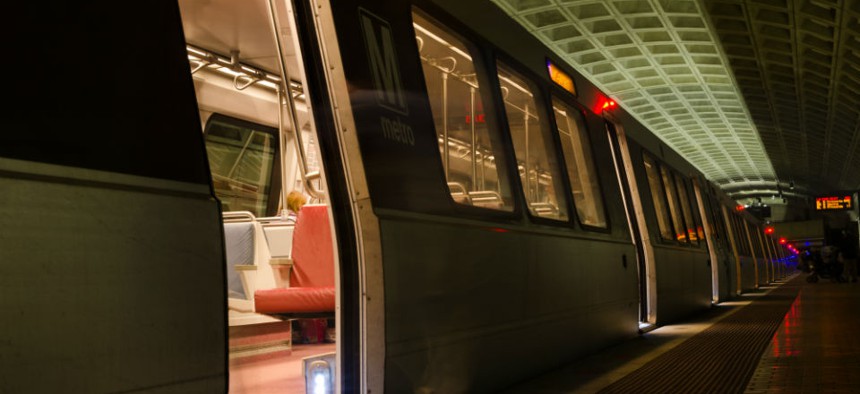Obama Threatens Veto Over Tax Deal Including a Bigger Mass Transit Benefit
White House raises concerns over other provisions that support corporate interests.
Lawmakers are pressing to reach a deal on a tax extender bill that would include language providing federal employees a much larger mass transit benefit, but negotiations are temporarily stalled.
President Obama issued a veto threat over the deal emerging between House Ways and Means Committee Chairman Dave Camp, R-Mich., and Senate Majority Leader Harry Reid, D-Nev., creating a significant setback in negotiations. The White House, according to multiple reports, said the bill -- which would deal with a variety of tax benefits -- is too favorable to corporations at the expense of working-class Americans.
The transit portion of the deal would make permanent a boost to the benefit for employees who ride public transportation to work. The benefit hike would apply to all American workers whose employers offer the perk, including federal employees. The benefit fell nearly in half in 2014, but the deal was expected to bring the subsidy back to the 2013 level of $245 a month, retroactively. The maximum monthly mass transit benefit dropped to $130 on Jan. 1 when a provision of the fiscal cliff deal expired.
Lawmakers and employee advocates alike have balked at the gap between the parking benefit, which actually increased by $5 in 2014 to $250 a month, and the mass transit subsidy.
The Senate Finance Committee in April approved the Expiring Provisions Improvement Reform and Efficiency -- or EXPIRE -- Act, a package including an array of temporary tax credits. While that bill would have provided a temporary extension of the credits, the new deal attempted to make many of them permanent as a first step toward larger tax reform. Republicans blocked the EXPIRE Act when it was brought to the Senate floor in May.
Internal Revenue Service Commissioner John Koskinen said in October Congress’ inability to finalize a tax plan could cause delays and disruptions in the tax filing season. Congress could still pass something next year, retroactive to 2014, though Koskinen said the challenges raised by that approach “would be even more severe.” A retroactive fix would not be without precedent; a similar gap between mass transit and parking benefits also existed in 2012, though the disparity was eliminated after the fact by the fiscal cliff deal.
The emerging deal would reportedly come with a more than $4oo billion price tag, causing problems on both sides of the aisle. It was not immediately clear how negotiations would proceed after Obama’s veto threat.
The original transit benefit boost was created in 2009 in what is colloquially known as the economic stimulus package, which temporarily increased the subsidy from $115 to $230 per month.
(Image via Orhan Cam / Shutterstock.com)




